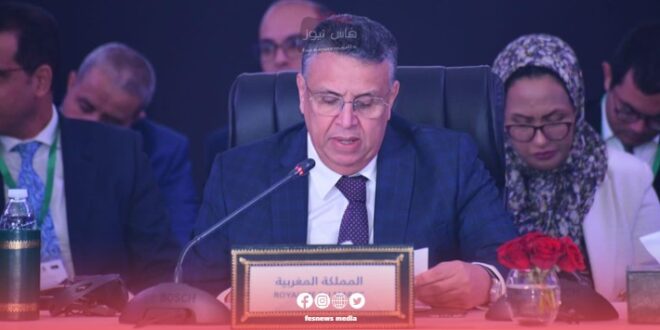Moroccan Justice Minister Abdellatif Ouahbi expressed his desire on Monday evening to extend alimony rights to include men, emphasizing the importance of promoting “true parity” between the sexes.
Alimony for Men in Case of Divorce
Moroccan women may find themselves obligated to pay alimony to men in the event of a divorce before the end of Prime Minister Aziz Akhannouch’s term. These statements made by Ouahbi during an interview on 2M TV are not a joke, but rather reflect a new direction in family law.The minister pointed out that most parties involved in divorce cases suffer, but often it is the man who is most affected by a decline in his standard of living. Ouahbi aims to change this unequal situation by imposing alimony, known as “nafqa,” on women who have a higher income in the couple.
Shared Financial Responsibility
When asked about his intention to collaborate with Bank Al-Maghrib to access the accounts of ex-husbands who do not pay alimony to their ex-wives after divorce, Ouahbi provided a surprising response. He stated, “When a woman requests a divorce, she must have all her rights. Therefore, we need to know what the man possesses and what the woman possesses because financial responsibility is shared.”He added, “Once we have a clear idea of the financial situation of both the man and the woman, we can determine who is the aggrieved party and who will compensate the other. If the woman’s income is higher than the man’s, she will be required to pay alimony to her ex-husband.”
Towards True Parity
Emphasizing the principle of shared financial responsibility, which is based on the idea that each spouse contributes equally to the household needs during marriage, and that in the event of divorce, this responsibility translates into financial adjustments to balance the situations of both parties, the minister stated that his department “is examining this point” because “there needs to be a certain balance and a kind of justice or equity.”After assessing the needs and financial capacities of both parties, women may find themselves obligated to pay alimony to men. “If we do not have this balance, we will not achieve true parity… When we talk about parity, it does not only concern women but also men. Because parity is both economic and social,” the Minister of Justice insisted, adding that “all these issues are currently subject to debate.”
Potential Impact on Moroccan Law
If Ouahbi succeeds in introducing this change into the Family Code, it could have a seismic societal impact, given that the Moroccan legal system, which is largely based on Islamic law, has never held women responsible for alimony. Traditionally, alimony has been a mechanism through which the husband, regardless of income differences, financially supports family members after divorce.
 فاس نيوز ميديا جريدة الكترونية جهوية تعنى بشؤون و أخبار جهة فاس مكناس – متجددة على مدار الساعة
فاس نيوز ميديا جريدة الكترونية جهوية تعنى بشؤون و أخبار جهة فاس مكناس – متجددة على مدار الساعة












